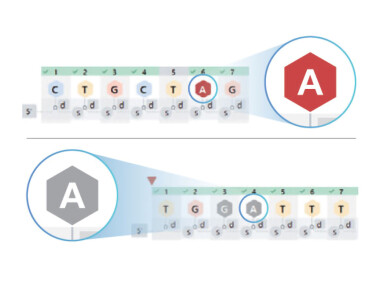IT Solutions
Signs Your Organisation is Failing to Manage Analytical Data Effectively
Oct 06 2022
While there has been progress in analytical data management, its unique challenges continue to frustrate. How do you align with these statements?
You moved from paper to glass
The Covid-19 pandemic helped accelerate the adoption of technologies to manage and provide remote access to data. But if you went from paper spectra and chromatograms to images in electronic systems, that data is not digitalised. It is not searchable and usable for scientists and would need lots of preparation before it can be used in data science or machine learning systems.
Analytical data is managed in disparate systems
Analytical data is often siloed. Even with centrally managed systems - ELNs, CDSs, and LIMS - different pieces of data is scattered across them. Chromatographic and spectral results are abstracted to text a in LIMS (retention time, peak area, peak lists, m/z values etc.). Results of decisions are stored in the ELN (the expected product was synthesised) but not the proof - the interpreted spectrum with annotations. Data may be searchable in the CDS but it cannot be reviewed or reinterrogated.
Data management is the responsibility of scientists
If routine analytical workflows are not automated you still have work to do. Data should be deposited in a central, searchable, and accessible location without burdening scientists.
Data is not normalised
With multiple techniques and numerous vendor formats, heterogeneity is a problem with analytical data. There is no single adopted standard for organisations to normalise their data on, but that doesn’t mean it cannot be harmonised.
ACD/Labs has been helping to optimise and digitalise analytical data-centric workflows for almost thirty years. Small organisations see great results from deploying our expert desktop software. We also offer company-wide, automated solutions that integrate with existing hardware and systems to increase efficiency, provide scientists ready access to data, and manage rich analytical data in a homogeneous, digitalised environment.
More information online
Digital Edition
Lab Asia 31.2 April 2024
April 2024
In This Edition Chromatography Articles - Approaches to troubleshooting an SPE method for the analysis of oligonucleotides (pt i) - High-precision liquid flow processes demand full fluidic c...
View all digital editions
Events
Apr 22 2024 Marrakech, Morroco
Making Pharmaceuticals Exhibition & Conference
Apr 23 2024 Coventry, UK
Apr 23 2024 Kintex, South Korea
Apr 23 2024 Seoul, South Korea
Apr 24 2024 Jakarta, Indonesia













.jpg)




